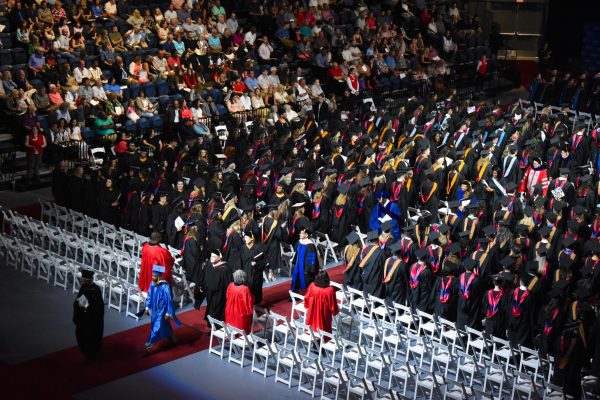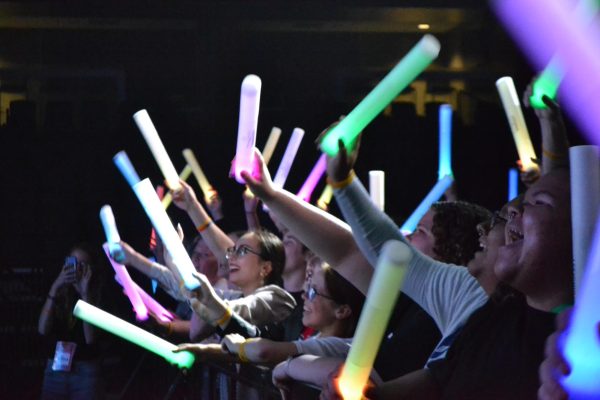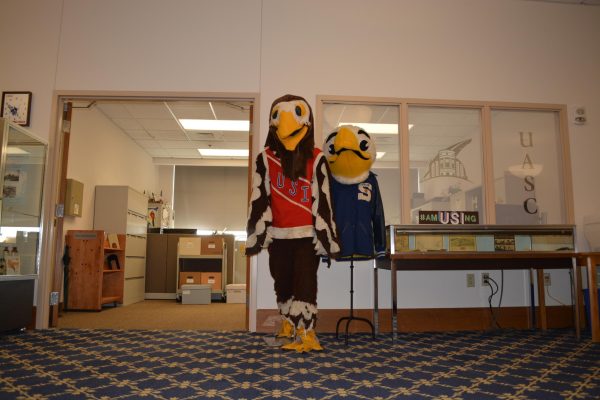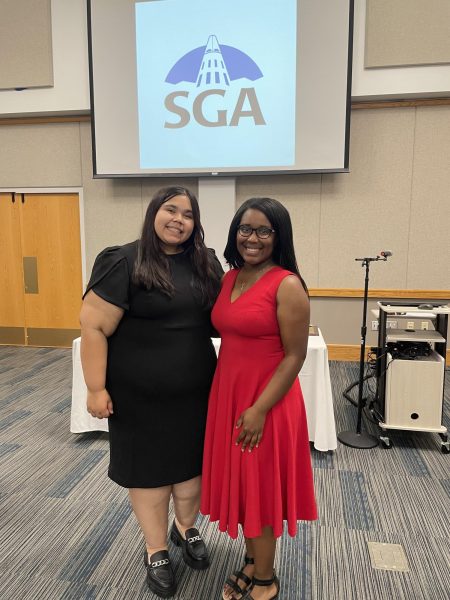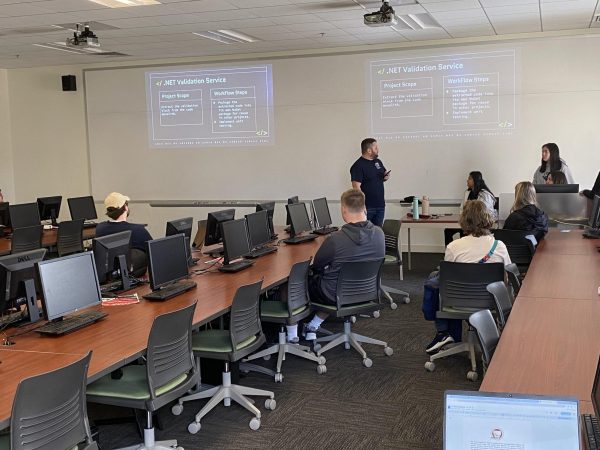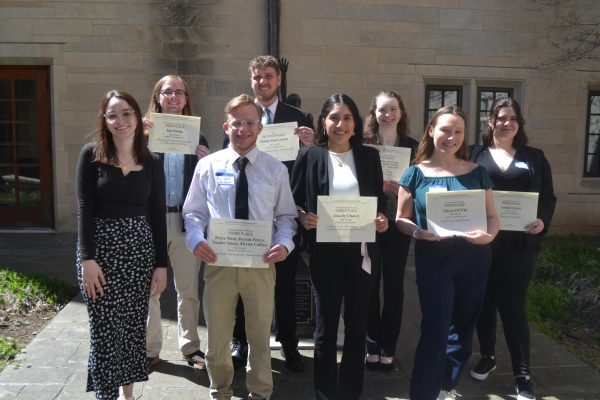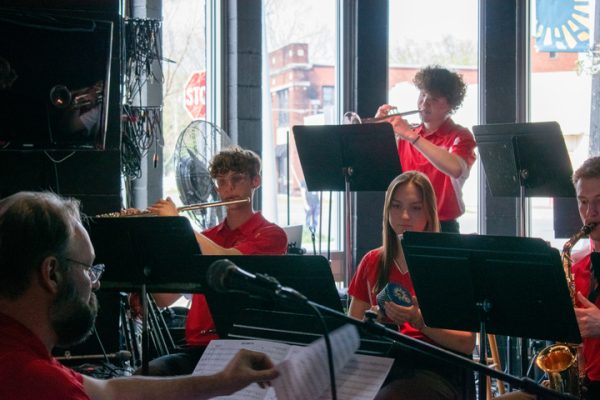University to add three degrees for fall
Indiana Commission for Higher Education approves degrees
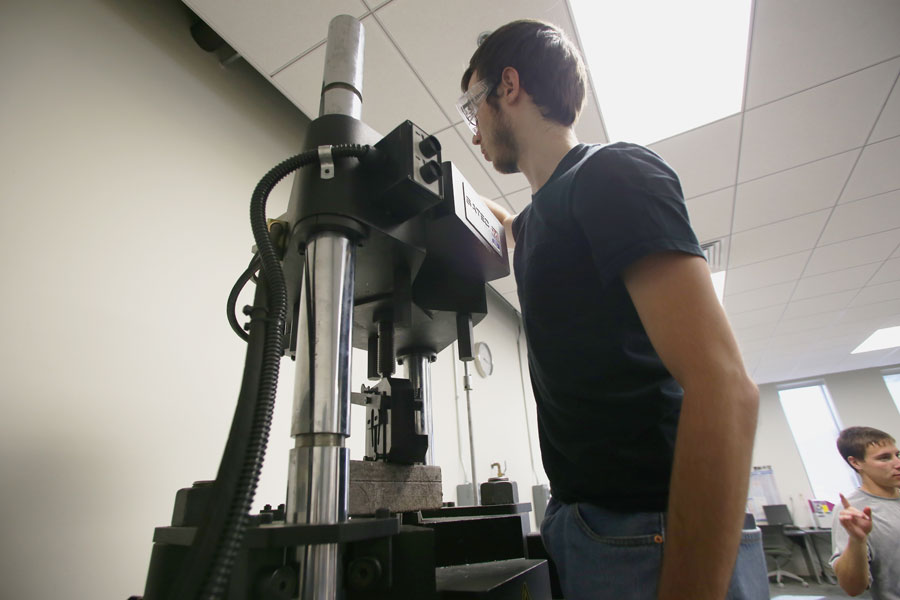
Kyle Brown, a senior mechanical engineering major, works hands on for a lab during his engineering strength of materials course last semester in the Business and Engineering Center.
Hoping to expand upon its current degree programs, USI has added three new programs to the Pott College of Science, Engineering and Education.
The programs being offered are mechanical engineering, manufacturing engineering and physics. The engineering degrees are offered as a Bachelor of Science, and physics is offered as either a Bachelor of Science or a Bachelor of Arts.
All three of these programs will be added to the university starting in the Fall 2016 semester.
Junior Cameron Gibson is one of the students currently enrolled at the university who plans to add the mechanical engineering major.
“The (bachelor of science in engineering) is more general and a broad spectrum, while the mechanical degree is more focused,” he said. “It’s more of a specialization.”
Gibson said he hasn’t found exactly what he wants to do with his degree, but he definitely wants to pursue a career within mechanical engineering.
“I like the quantitative and mathematical side of engineering and solving a problem,” he said.
The goal of the new engineering degrees is to add new employees to the industrial area surrounding Evansville, said Engineering Department Chair Zane Mitchell.
The mechanical engineering degree focuses on the design of anything containing moving parts, while manufacturing engineering focuses on how those products are built. These programs are meant to complement each other, yet be very different in design, Mitchell said.
He said the programs have been a strategic focus for the department for awhile, but paperwork began early in 2015.
The university was looking for new programs that would better help the students and since this was something the students were looking for, Mitchell said the time was right. He said the department has all the skills needed for the programs and the degrees directly address student needs.
“The mechanical (degree) was an easy choice for a first offering. It is currently most popular of the five emphases we have in the existing engineering degrees,” Mitchell said. “In fact, it works out in any given year 40-45 percent of our engineering students are doing the mechanical emphasis.
Mitchell said the mechanical is the most requested when he talks to parents and prospective students.
He said the manufacturing degree needed more research to find the right program.
After extensive research, the department discovered there is not a manufacturing engineering degree anywhere in Indiana. With the region and facilities offered on campus, Mitchell said it was also an easy choice.
A key factor in the decision of these programs was the expertise of current faculty. With the introduction of the new degrees, there is not a need to find new faculty since current faculty is able to teach the classes needed.
“I expect some good steady growth,” Mitchell said. “I think we will get some additional students who would otherwise have not come to USI for these specific degree programs.”
As for the physics major, program coordinator Kent Scheller said the department has finally grown large enough to support it.
“In the big picture, it was a sore thumb that has stuck out in our curriculum,” Scheller said. “No school our size has a full-fledged engineering program and other complementary science program without having a physics program.”
Since submitting the major to the Indiana Commission for Higher Education, five students have approached Scheller about changing their majors, Scheller said.
The department is projected to have five to seven students in the new program per class per year. They also expect to have a small, but personal program where students have access to faculty all the time.
“We turned away several students who wanted a physics degree in the past,” Scheller said. “They were very capable in math and sciences but didn’t necessarily want to do math as a major or engineering as a major. Now they have the opportunity to major in the field they want to major in.”

